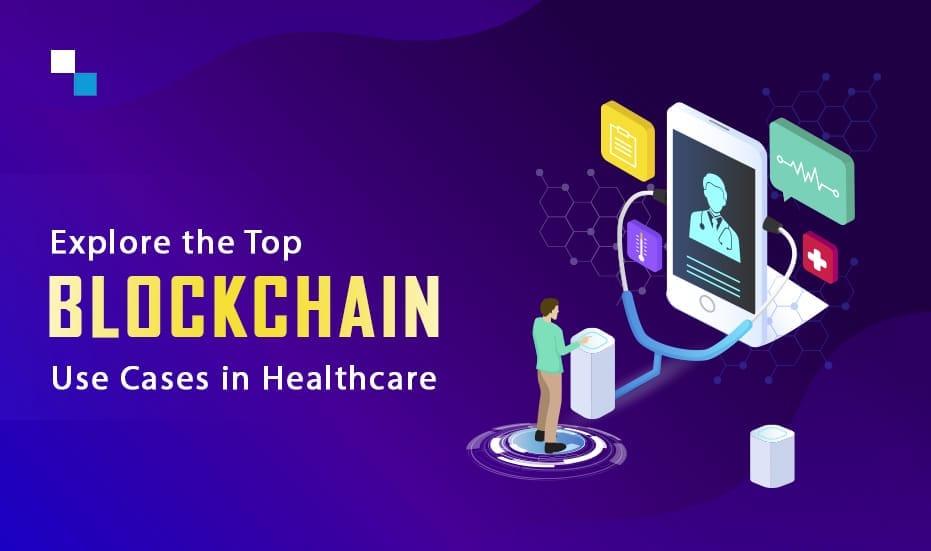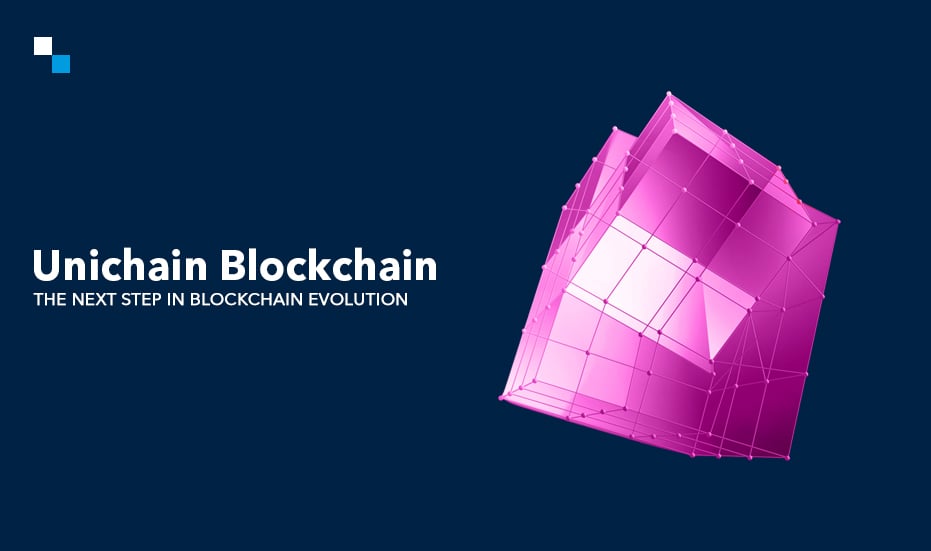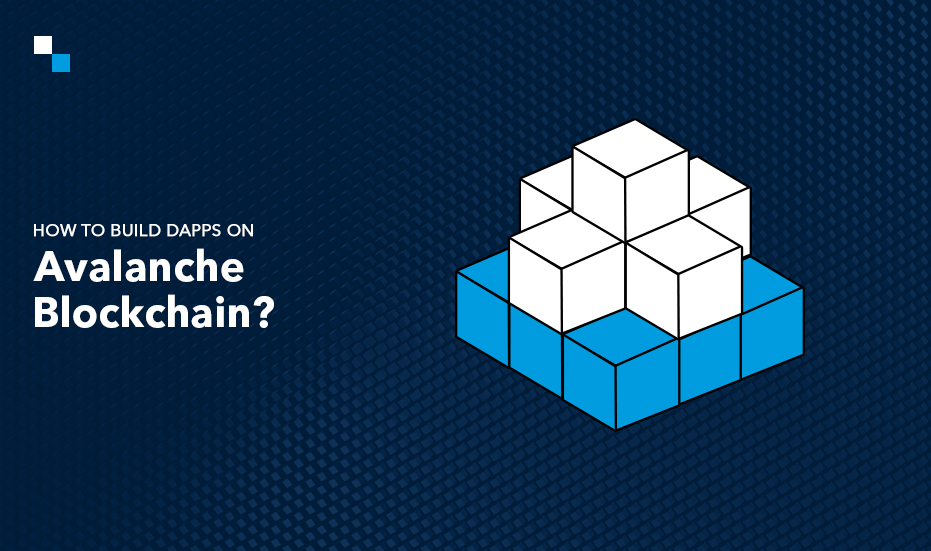
SRC-20 Tokens: Unlocking Lucrative Opportunities Of The Bitcoin Ecosystem
June 12, 2023
Asset Tokenization on Polygon: Unlocking Value and Efficiency
June 13, 2023Blockchain has emerged as a revolutionary technology, advancing several sectors of the economy, and healthcare is one of them. Though several traditional methods are currently used to handle sensitive health records and other critical processes, these methods are also prone to several risks. Adopting Blockchain healthcare solutions is imperative to tackle the major challenges in the healthcare landscape, such as data interoperability, security, and privacy. In this blog, we will cover in depth the different Blockchain use cases in healthcare along with the real-life examples highlighting the technology need.
List of Top Blockchain Use Cases in Healthcare
The following are the most prominent Blockchain use cases in healthcare you should know in 2024-
- Electronic Health Records (EHR)
EHR system service providers like Epic store patients’ health data, however, the information silos are also present. Additionally, the incompatible IT systems and scattered data trail also restrict the patient to access their medical history or other related data. This interoperability issue limits the hospital to medical data sharing with other healthcare institutions.
According to an Oxford University Press report, 43.9 percent of US physicians reported symptoms of burnout in 2017 due to the higher usability and time-consuming EHRs. Doctors are spending more time learning different IT systems than actually consulting patients.
Blockchain is an innovative solution that can be integrated into the existing EHRs, enabling patients and hospitals to pull data from a single authoritative source. The immutability and decentralized Blockchain promotes a seamless and interoperable health record system, reduces administrative burdens, and ensures patient privacy. Companies like IBM are already building Blockchain healthcare solutions that allow patients to access a lifetime history of their medical records across various institutions.
- Drug Traceability in Healthcare Supply Chain
The 2017 research from WHO sheds light on the worldwide problem of counterfeit drugs, showing 1 in 10 medical products in developing countries is counterfeit. Another eye-opening report by American Health & Drug Benefits shows that the illegal production of drugs causes more than 100,000 deaths per year globally and, at the same time, pharma companies face the lost revenue of around $18 billion.
These data clearly show that there is a critical need to adopt a technology that can help in coping with drug counterfeiting. Implementing Blockchain technology can help address this global problem, providing end-to-end traceability and transparency in the pharmaceutical supply chain. Tracking and verifying the authenticity, quality, and provenance of drugs become easier when every transaction and movement of drugs is recorded on Blockchain. Such a level of transparency and traceability in the system reduces the risk of counterfeit medications entering the market and enables more efficient recalls when necessary. Blockchain-based supply chain management systems can also improve inventory management, reduce wastage, and ensure the timely availability of medicines.
- Health Insurance Claims and Fraud Detection
In the realm of health insurance claims (one of the most beneficial Blockchain use cases in healthcare), Blockchain emerges as the game changer as it helps streamline and automate the process. Smart contracts on the Blockchain can be used for the verification of claim authenticity, ensuring that they meet predefined conditions. Moreover, the decentralized nature of Blockchain ensures that all relevant parties, including patients, healthcare providers, and insurers, have access to the same information, minimizing disputes and delays.
One real example is PokitDok, an old startup that partnered with Intel to create a distributed ledger healthcare solution called “Dokchain” for the industry. The solutions offer identity management advantages in order to validate each party involved in the transaction, no matter whether it is the consumer, payer, or provider. It has the ability to perform ‘autonomous auto-adjudication.’ The feature encourages faster transactions and helps process claims in seconds instead of taking months.
Blockchain use cases in healthcare also include fraud detection. The technology allows you to record every transaction and interaction on an immutable ledger, making it challenging for malicious actors to manipulate or falsify data.
Get Your Blockchain Healthcare Applications Developed from our Experts Today
Schedule Free Demo- Telemedicine and Remote Patient Monitoring
Blockchain can revolutionize telemedicine and remote patient monitoring, addressing several critical challenges, including data security, interoperability, and patient privacy. Blockchain use cases in healthcare ensures the integrity and confidentiality of sensitive patient information and enables seamless data exchange between different stakeholders, leading healthcare providers to bet on this technology. Blockchain facilitates remote patient monitoring by securely recording and sharing real-time health data collected from wearable devices or IoT devices that help healthcare professionals to monitor the patient’s health conditions closely and provide timely interventions.
Developed by researchers, MedRec is a leading player in the healthcare industry that utilizes Blockchain to create a decentralized, patient-centered health record system. With MedRec, patients can enjoy full control over their medical data and can grant access to healthcare providers as per their desires.
- Clinical Trials
Clinical trials and research are the foundation of innovation in the medical industry. However, significant challenges need to be addressed, such as a lack of trust that sensitive medical information will be kept secure, the risk of data being fabricated, manipulated, or duplicated by researchers committing outright fraud, and the lack of interoperability of digital health records.
The clinical trial research industry has attempted to build several healthcare solutions that can address these issues, however, failed many times. One such promising technology is Blockchain which has the capability to reshape the industry. Technology completely changes the way information is stored, shared, and transacted.
Blockchain healthcare solutions can streamline the process of conducting clinical trials. As every transaction and outcome is recorded on Blockchain, the entire clinical trial process becomes transparent. It improves data integrity and patient consent management. This transformative technology also enables the secure sharing of trial data among researchers, sponsors, and regulators while maintaining privacy and preventing data tampering. Blockchain healthcare applications also allow patients to maintain ownership of their data and participate more easily in clinical trials, leading to faster recruitment and improved trial outcomes. There are many Blockchain use cases in healthcare, and clinical trials are one of the areas that leverage the technology in the best way.
- Medical Research and Data Sharing
Blockchain technology holds the potential in enhancing medical research and data sharing. It can revolutionize the way healthcare data is managed and accessed. Researchers and healthcare organizations can leverage Blockchain to address challenges, especially in terms of data privacy, security, and interoperability.
Blockchain enables secure and decentralized data sharing among researchers, allowing them to access a broader range of information while ensuring patient confidentiality. Additionally, Blockchain technology ensures data integrity and immutability, reducing the risk of data tampering or fraud. Researchers can trust the validity of the data recorded on the Blockchain, promoting transparency and facilitating the reproducibility of research results.
Conclusion
The top 6 Blockchain use cases in healthcare we discussed in this blog highlight how Blockchain can address critical challenges in healthcare, such as data interoperability, security, and privacy. As we move forward in 2024 and beyond, the adoption of Blockchain in healthcare is expected to grow, leading to a more efficient, secure, and patient-centric healthcare ecosystem. With Antier, you can embrace Blockchain technology to unlock new opportunities, transform healthcare operations, and ultimately improve patient outcomes. Antier is a leading Blockchain healthcare applications development company having sheer expertise in creating quality Blockchain healthcare solutions and empowering the industry to a great extent.



